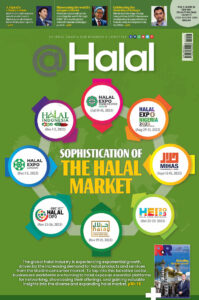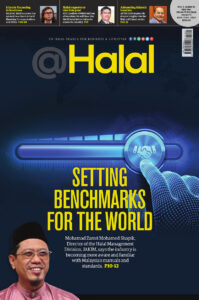Islamic banking is gaining traction in the UAE in terms of progress, penetration and perception according to the Islamic Banking Index from Emirates Islamic.
“The current pandemic situation has affected Islamic and conventional finance markets in the short-term. We expect strong growth in the Islamic finance market to continue to increase,” said Deputy CEO-Consumer Banking and Wealth Management at Emirates Islamic, Wasim Saifi.
The share of Islamic banks’ assets to total assets in the UAE has increased from 17.3 per cent in 2013 to 18.8 per cent as at June, 2020.
As a fallout of 2020’s global economic downturn due to the pandemic, this year’s edition of the Index demonstrates a small reduction in the overall penetration of conventional and Islamic products compared with 2019.
The overall penetration of conventional and Islamic banking dropped from 60 per cent last year to 58 per cent for Islamic banking products and from 65 per cent to 64 per cent for traditional banking.
The penetration of Islamic banking products has increased gradually from 47 per cent to 58 per cent since 2015, while conventional banking products have seen a reduction from 70 per cent to 64 per cent.
The UAE is working on initiatives to support the growth of Islamic finance. The UAE Ministry of Finance announced plans to create a “unified global legal and legislative framework” for the sector.
DIFC has been investing heavily on fintech to spur the growth of the Islamic finance industry. The FinTech Hive accelerator partners with specialist organisations that include the Dubai Islamic Economy Development Centre (DIEDC) and various Islamic banks.
DIEDC collaborated with DIFC, Dubai Financial Market, and Climate Bonds Initiative to grow the ‘green sukuk’ market. The agreement aims to promote the issuance of green sukuks and develop the standards for their certification along the lines of Climate Bonds’ Standard and Certification Scheme.
Investor interest in Islamic investment opportunities are on the rise and is demonstrated by the successful sukuks from Emirates Islamic and Dubai Islamic Bank and the oversubscriptions they generated.
“With the economy opening up and lockdown measures lifted, we continue to witness increased uptake on Islamic finance products, particularly on the retail segment,” said Saifi.
Briefs
Saudi Arabia: SFDA trains specialists from 25 countries about halal food requirements
The Halal Centre at the Saudi Food and Drug Authority (SFDA) organised a two-day virtual training course entitled “General Requirements for Halal Food”.
The training course, attended by 200 people from 25 countries, aimed to highlight requirements of halal food, raise the capabilities of workers in food establishments and halal certification bodies around the world in identifying the halal supply chain in the food industry, the risks that threaten it and how to control it.
The course also outlined the requirements of slaughtering according to Islamic law to rehabilitate slaughterhouses and prepare specialists for halal slaughter.
The course included answering questions related to halal certificates, potential risks in the halal industry, methods of online examination on halal production and their reliability and their ability to give correct results, the legality of some food additives, and the clarification of the legal fatwa regarding them.
ECJ: EU States can mandate stunning animals for slaughter
According to the EU’s Halal Integrity, Meat & Poultry, Research, Europe’s top court has backed a ban in Belgium on the slaughter of animals that had not been stunned. Jewish and Muslim groups have warned this may curtail religious freedom.
Cows on a farm in the Scottish BordersAnimal rights activists had pushed for the ban, which could prevent both kosher and halal ritual slaughter.
The European Court of Justice (ECJ) has ruled that EU member states could legally ban stun-free slaughter, despite initial opposition from religious groups.
In 2017, the Flemish region of Belgium prohibited the slaughter of animals without reversible stunning beforehand. Jewish and Muslim groups in the country challenged the legislation, citing freedom of religion.
Initially, Jewish and Muslim associations in Belgium said a ban on stun-free slaughter would violate the right to religious freedom, which is guaranteed in the EU Charter of Fundamental Rights. Such a ban would make kosher or halal slaughter impossible, they said.
These dietary practices require livestock to be conscious when their throats are slit.
“The effect of this law is, in essence, to prohibit the slaughtering of animals using traditional Jewish and Muslim rites and to require that such animals be stunned before slaughter to reduce their suffering,” said a statement made ahead of the ruling.
But the ECJ found that the regulation was only limited to “one aspect of the specific ritual act of slaughter,” and that the slaughter itself was not prohibited. It added that the law allowed for a “fair balance” between animal welfare and the “freedom of Jewish and Muslim believers to manifest their religion.”
UAE’s IHAF launches new digital infrastructure
The International Halal Accreditation Forum (IHAF) has launched its enhanced and more robust brand feel, an improved website and a new web application as part of its staunch commitment to be the only international forum unifying halal practices through standardisation of halal criteria among assessment bodies.
The new digital infrastructure of IHAF consists of the new digital-friendly brand, dynamic website, an automated members’ management system and members’ web application.
The members’ application, which can be accessed through www.ihaforum.ae, is deemed a progressive leap as it allows interactive communication between IHAF’s members in real-time. Members can efficiently process all their requests digitally, while future ones can apply for membership online with ease.
Recently, the industry turned to off-site assessments to respond to the impact of movement restrictions and the closing of borders due to the pandemic. Members highlighted in the 8th IHAF Multi-Lateral Recognition meeting that remote auditing for the conformity assessment activities could make recognition wider, generate more schemes, and save more time.








